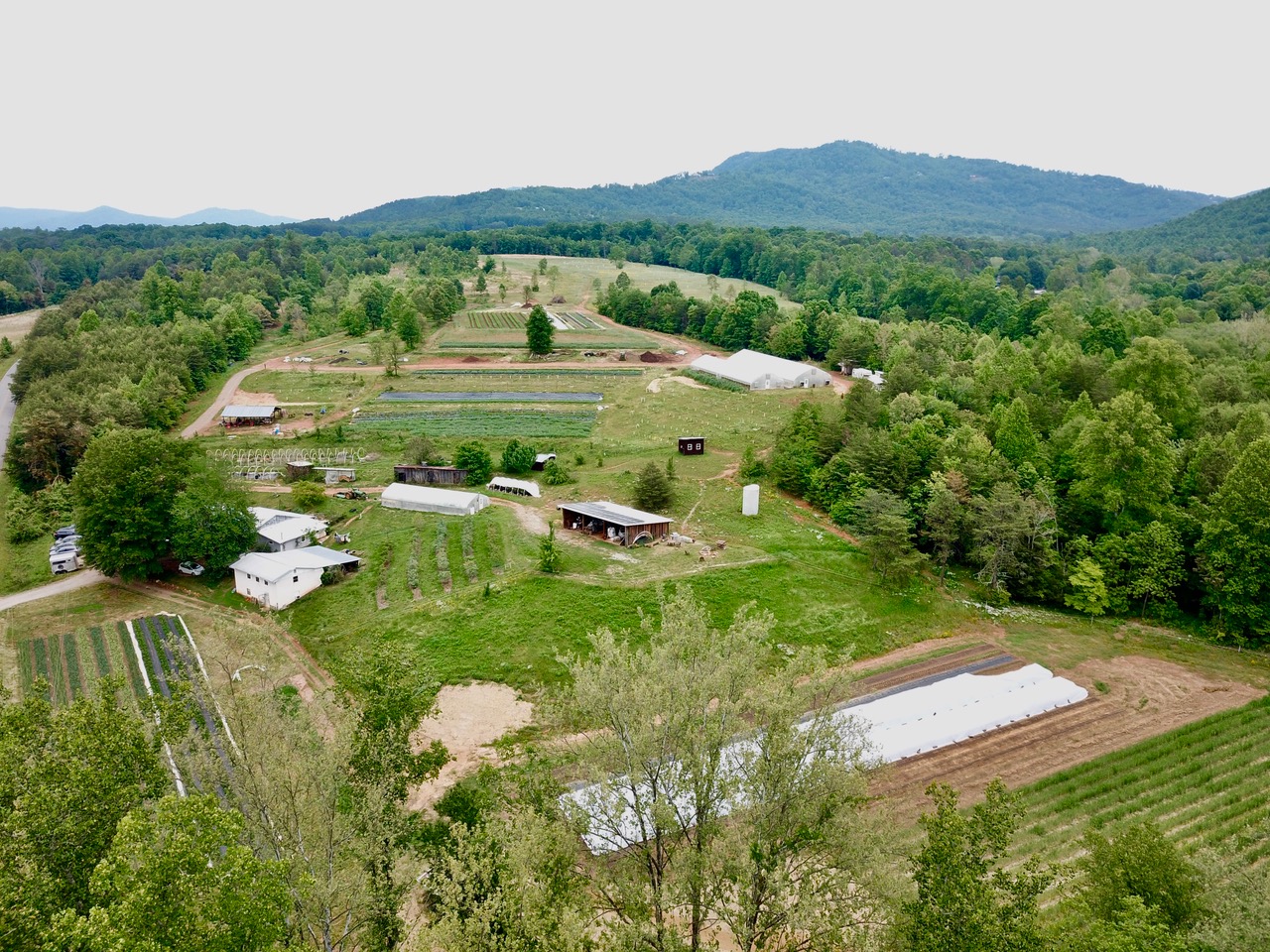How A Way of Life Farm Aligns Economy with Ecology
Earlier this spring, Jamie and Sara Jane Davis showed their crew pictures of A Way of Life Farm circa 2009, the year they had purchased the Bostic, North Carolina land.
“It looks like high desert country,” remarked one of the farmhands.
A previously clear-cut pine forest, most of the farm was shrubby with regrowth in some places, bare and devoid of life in others. Red, clay soil—all that remained in certain spots—belied the wet and fertile growing conditions of western North Carolina.
A Way of Life’s journey from barren to abundant has been years in the making, born out of a carefully considered philosophy of growing good food while living intentionally. For Sara Jane, her passion was sparked by a childhood working her grandfather’s garden. For Jamie, an upbringing cutting hay and mending fences on his family’s horse farm cultivated a deep interest in working with the land and, eventually, permaculture design.
“We wanted to be producers in the world, not just consumers,” Jamie says, thinking back on a conversation the two of them had in college 20 years ago, where they first met. “By farming, we knew we could take something—like a piece of land that had been clear cut and ravaged—and turn it into something ecologically productive and biologically diverse.”
Today, A Way of Life Farm is a thriving, certified organic farm, supporting over 40 varieties of fruits and vegetables, including many you won’t find in the grocery store (think pawpaws and che fruit), and a diverse mix of cover crops, such as a planting of sorghum-sudangrass, buckwheat, and sunn hemp that grew to waist height in just four weeks. The sunn hemp hosts wild nitrogen-fixing bacteria that takes nitrogen from the atmosphere and converts it into a plant fertilizer.
Soil health is the root of everything, including the farmers’ recent dedication to no-till practices, a lofty goal that has been their intention from the start.
A conventional way of preparing soil for planting by physically ‘churning’ or ‘turning over’ the soil, tilling has been used by farmers for thousands of years as a way to aerate soil and protect farms from weeds and insects. The majority of organic famers till their soil to avoid the use of chemicals that control weeds and pests.
But tilling has its downsides—it releases carbon into the atmosphere, contributing to climate change, and disrupts soil structure. Soil that is tilled may be more susceptible to erosion and water evaporation, increasingly a concern as drought grips much of the country. With an eye to the future, organic farmers like the Davis’ are learning how to build soil health and sequester more carbon by employing no-till fruit and vegetable production, practiced by indigenous people around the world for thousands of years.
The Davis’ pay close attention to the land for signals from their soil and produce, customizing a unique approach to each individual field. In the same bed that had been worn down to red soil by logging trucks, they now pull beets and Irish potatoes up by hand in order to preserve the structure of the dark soil teeming with subterranean life. In other fields, they employ practices like intercropping—planting, for example, cilantro between broccoli and letting it go to flower—to attract beneficial insects. Fields that are battered by extreme weather conditions are “pampered” with nutritious, fortifying slurries of home-brewed compost extract, seaweed, raw milk, molasses, and fermented fish, soaked into the soil around the plants. The payoff of these more labor-intensive approaches has been a more resilient operation.
“We’re not just trying to grow plants, we’re trying to create a living system in the soil,” says Jamie, who sees farming as a form of activism. “When the soil is really thriving, our plants are healthier and therefore more pest and disease resistant; they have a larger and wider array of nutrients. And when we eat produce from living soil, we’re healthier and more disease resistant as well.”
Find A Way of Life’s produce at the Charlotte Regional Farmers’ Market in North Carolina, or by becoming a member of their CSA.


